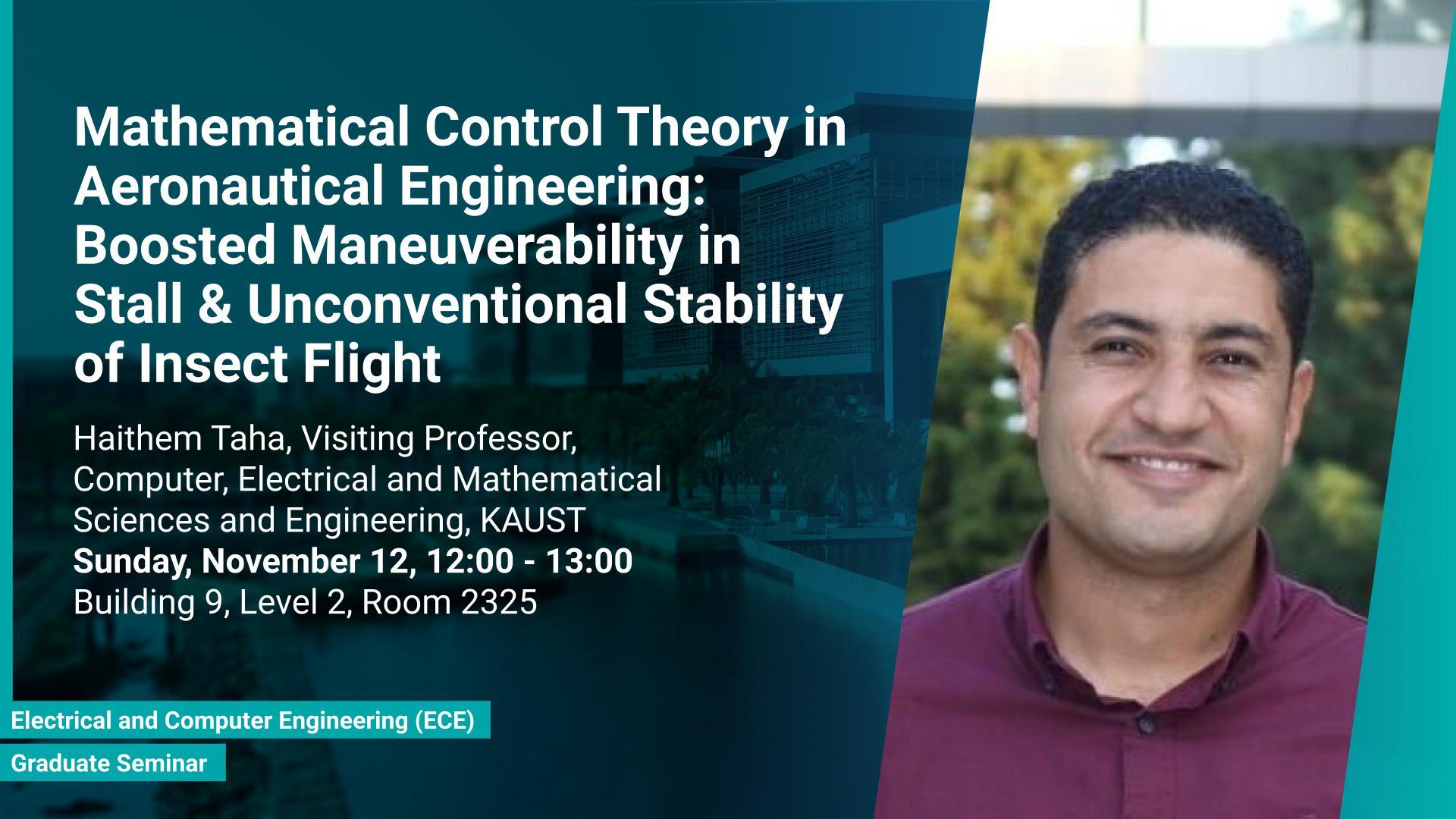Abstract
The great Russian Mathematician Vladimir Arnold once said, “Mathematics is the part of physics where experiments are cheap”. In this talk, I will present two modern applications in aeronautical engineering where simple, but rigorous, mathematical control theory led to game-changing results exploiting nonlinearities and time-variation rather than obviating them. First, I will present differential geometric control theory as a powerful analysis tool for airplane flight mechanics. Using such a theory, we discovered a novel rolling mechanism, due to nonlinear interactions between elevator and aileron, which has a significantly higher control authority near stall than the conventional linear rolling mechanism due to ailerons. This mechanism will help solve a chronic problem in aviation: loss of control near stalls. Second, I will show how geometric control theory, when combined with averaging, provides rigorous mathematical tools for time-periodic systems. In particular, when applied to the hovering flight of insects or flapping-wing micro-air-vehicles, it revealed a fascinating stabilization mechanism that insects may unconsciously exploit during flight: vibrational stabilization.
Brief Biography
Haithem Taha is currently an associate professor in the Department of Mechanical and Aerospace Engineering at the University of California, Irvine. He holds BSc and MSc degrees in aerospace engineering from Cairo University, Egypt in 2005 and 2008. He received his Ph.D. degree from the Engineering Science and Mechanics department at Virginia Tech under the Benjamin Franklin Medalist, Prof. Ali Nayfeh, simultaneously with an MSc degree in Mathematics in Dec 2013. Taha’s research interests span geometric nonlinear control theory, unsteady aerodynamics, theoretical mechanics, and variational principles with applications to unconventional flight mechanics such as bio-inspired flight. He is a Recipient of the NSF CAREER Award among several other awards. He is an AIAA Associate Fellow. Taha is particularly interested in the history and philosophy of mechanics and has several lectures on the topic.
